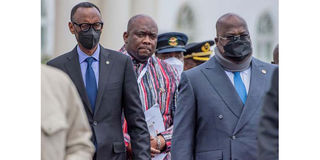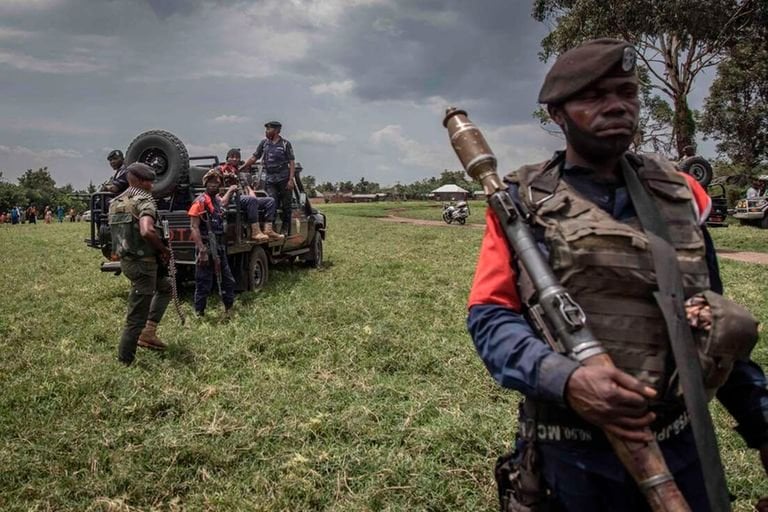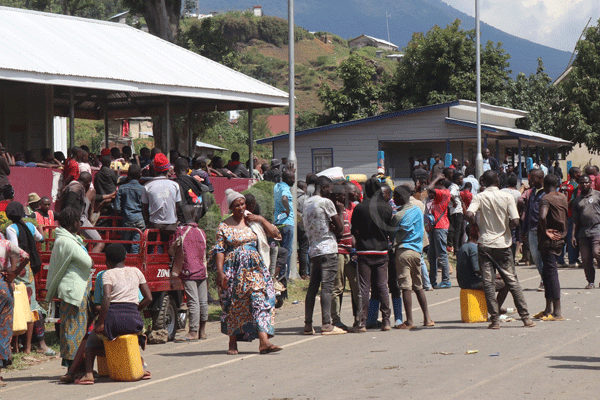Do not let Rwanda-DR Congo impasse derail EAC

Rwandan President Paul Kagame (left) and DR Congo President Felix Tshisekedi(right) arrive in Nairobi, Kenya, for the signing of the treaty of accession that made DR Congo the 7th member of EAST African Community (EAC) on April 8, 2022. PHOTO/ RWANDA PRESIDENCY
What you need to know:
- History suggests that it was fairly successful in its early years. In 1977, the EAC collapsed.
- The cause of the collapse included demands by Kenya for more seats than Uganda and Tanzania in decision-making organs.
When Uganda, Kenya and Tanzania came together to form the East African Community (EAC) in 1967, the dream was to create a regional bloc that enriches its citizens.
History suggests that it was fairly successful in its early years. In 1977, the EAC collapsed.
The cause of the collapse included demands by Kenya for more seats than Uganda and Tanzania in decision-making organs.
In addition, Ugandan president Idi Amin demanded that Tanzania as a member state of the EAC should not harbour forces fighting to topple the government of another member state, and the disparate economic systems of socialism in Tanzania and capitalism in Kenya.
While the EAC was eventually revived in 2003, over two decades after its collapse, the issues that led to its folding have not ceased even as it has expanded to seven countries.
The Rwanda-Uganda border was closed for nearly two years. Rwanda and Burundi have a tense relationship.
Now, Rwanda and the newest member, Democratic Republic of Congo (DR Congo), are involved in a military confrontation.
Each accuses the other of supporting cross-border rebel activity. Artillery shells have been fired across the border in an escalation that could descend into a full-scale war.
Although the EAC is largely an economic bloc with designs of attaining a political federation in the future, these skirmishes threaten to derail the successes achieved so far.
EAC presidents ought to treat the latest impasse with the urgency it deserves. The leaders Kenya, Tanzania, Burundi, South Sudan and Uganda need to step in now.
After all the pessimism of the past, the EAC bloc seemed to be getting things with promises for more.
Uganda and Rwanda are working on normalising relations. DR Congo has held business summits with both Kenya and Uganda.
The volumes of trades between the member states have been steadily rising. In fact, Uganda’s biggest trade partners are regional neighbours.
The entry of DR Congo is seen by economists as a game-changer as its eastern part lacks almost everything following five decades of conflict.
Even with the impurities around the mobility of labour and some protectionist policies in the agricultural sector, the EAC is on an upward trajectory.
It’s highly unlikely that the political federation will come to fruition as the countries still use different political systems but such may not benefit many beyond the politicians.
Cross-border trade is extremely important to hundreds of millions of citizens and conflict will disrupt it unless arrested now.




